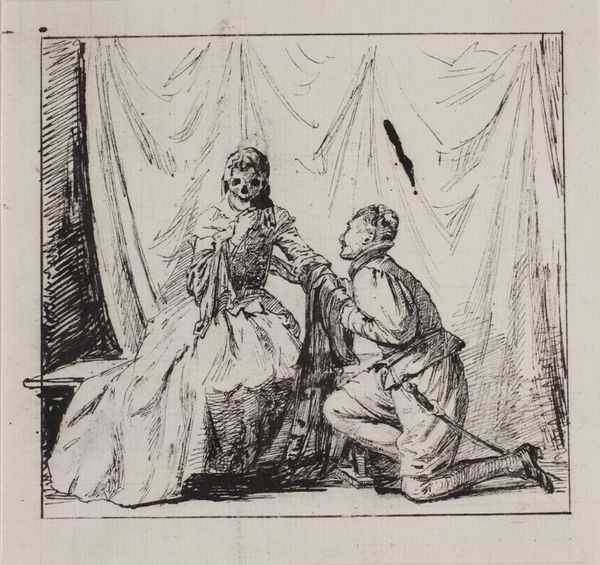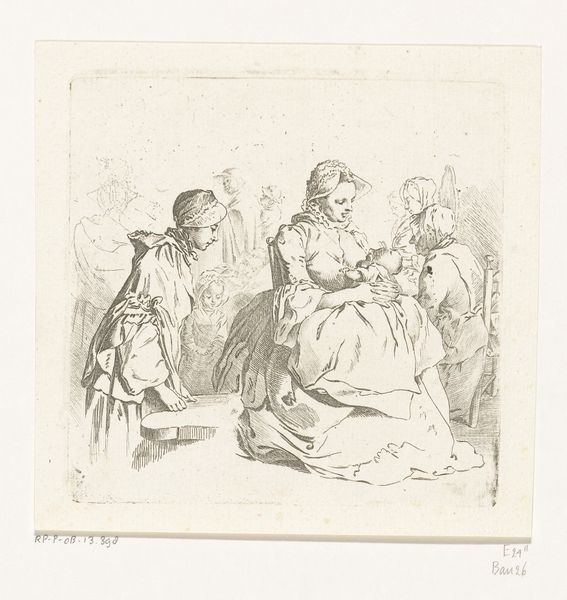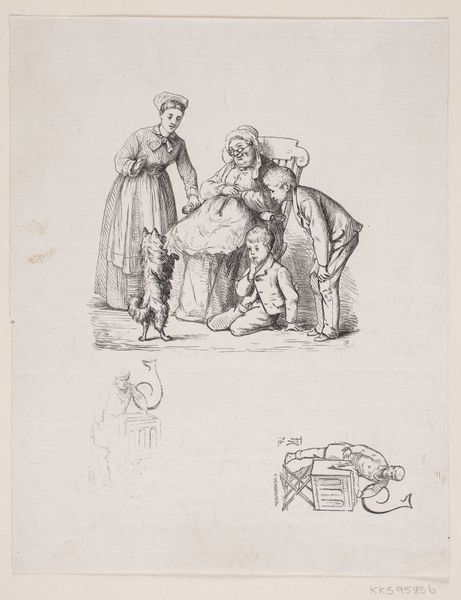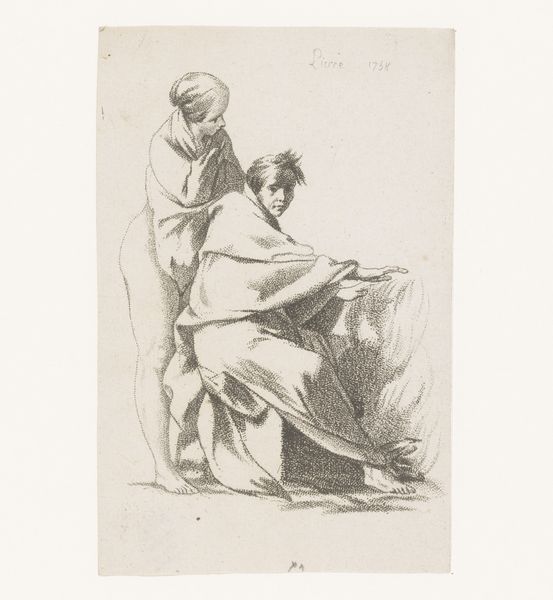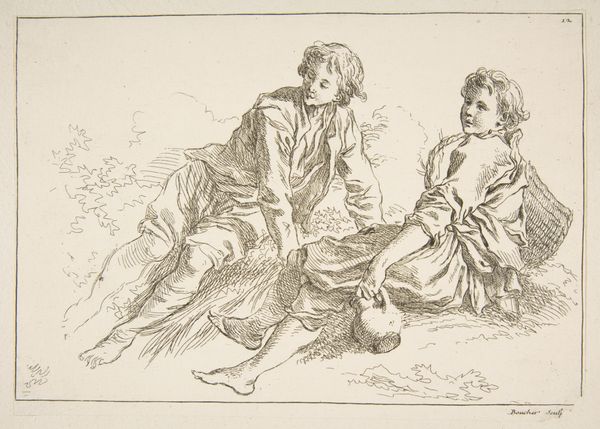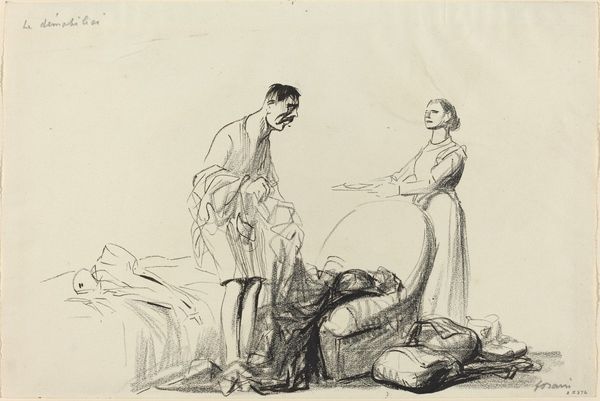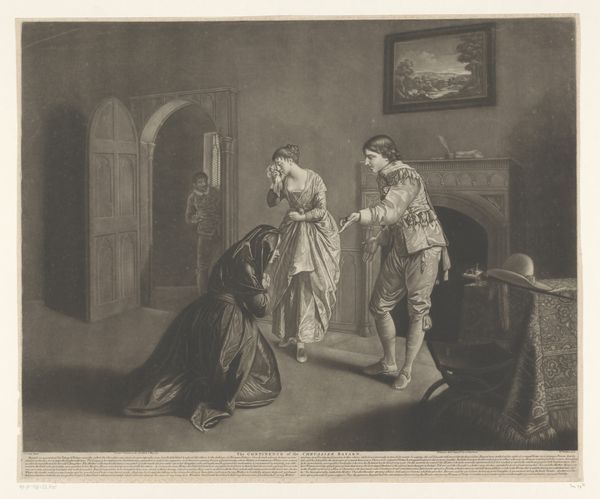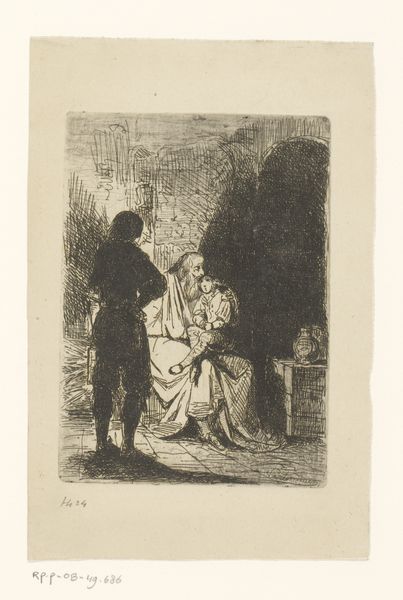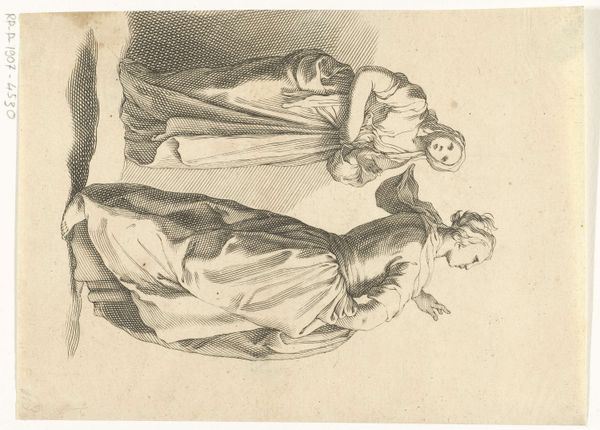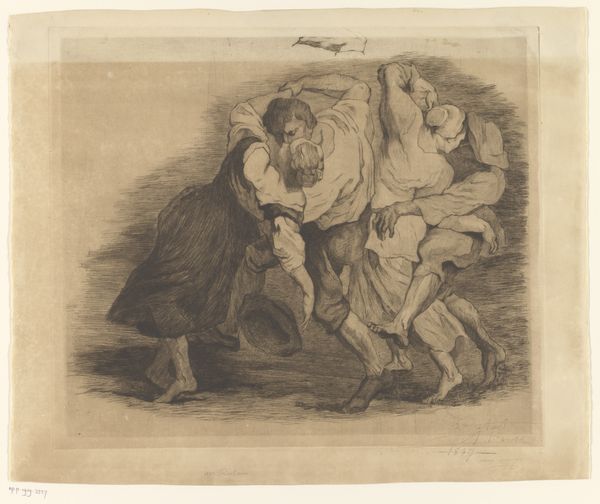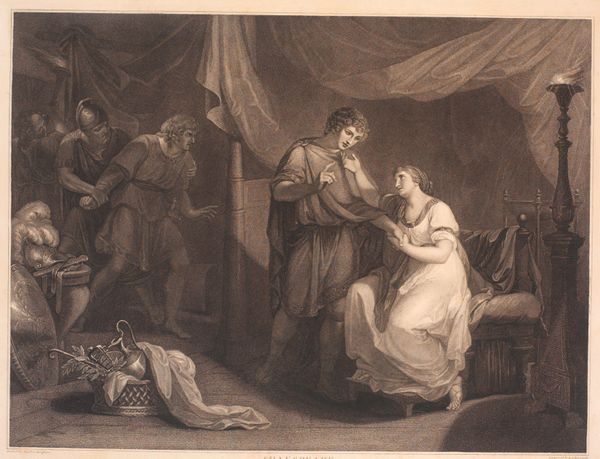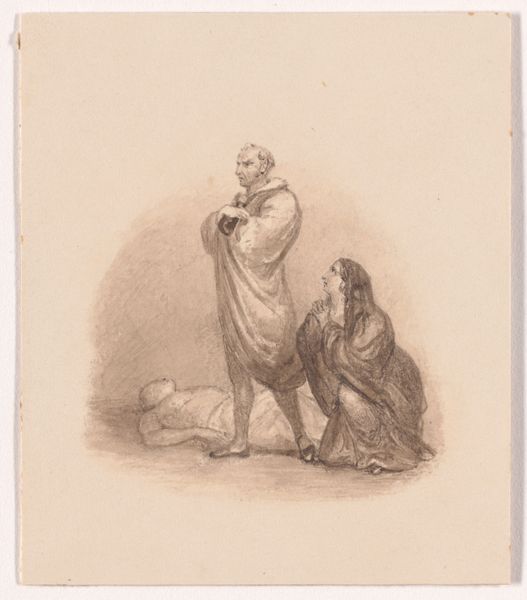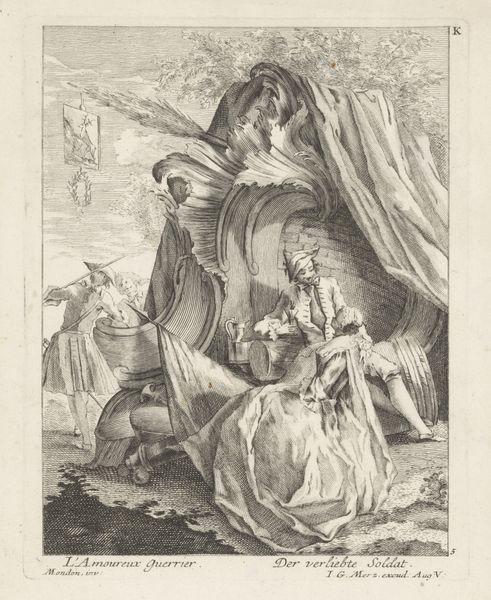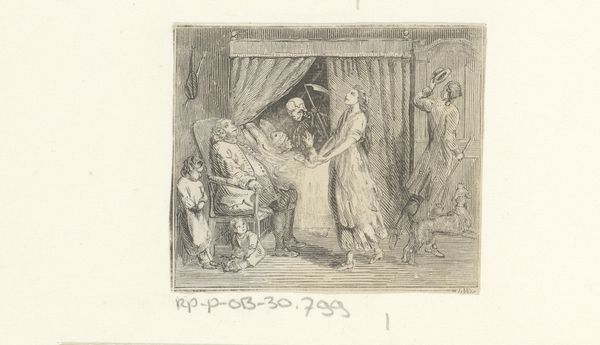
print, etching
#
portrait
#
narrative-art
# print
#
etching
#
portrait drawing
#
genre-painting
#
history-painting
Dimensions: 165 mm (height) x 208 mm (width) (bladmaal), 124 mm (height) x 133 mm (width) (plademaal)
Carl Bloch made this etching, ‘The Young Man and Death,’ around 1880. The image encapsulates a pervasive cultural obsession in 19th-century Europe, where the romantic allure of death intertwined with social anxieties about mortality and morality. Here, a young man kneels before Death, personified as a woman. This challenges conventional gender roles. The image creates meaning through the artist's distinctive technique and the stark contrast between youth and decay. Denmark, at this time, was experiencing significant social and political changes, with burgeoning industrialization, urbanization, and debates about national identity. Bloch’s portrayal of death as both alluring and terrifying might reflect the uncertainties of this era. By exploring sources such as letters, exhibition reviews, and cultural histories, historians can uncover the social and institutional contexts that shaped Bloch’s art. The meaning of art lies in this intersection of artistic expression, social anxieties, and institutional forces.
Comments
No comments
Be the first to comment and join the conversation on the ultimate creative platform.
